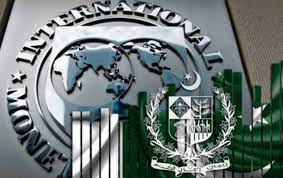Pakistan with IMF Part = 2
Pakistan has a long-standing relationship with the International Monetary Fund (IMF), having entered into 23 loan programs with the organization since its inception in 1947. The most recent program was approved in July 2019, and marked Pakistan's 13th program with the IMF. The program aimed to help Pakistan address its balance of payments crisis, stabilize its economy, and lay the foundations for sustainable and inclusive growth.
The program was a response to Pakistan's deteriorating economic situation, which was characterized by a widening current account deficit, dwindling foreign exchange reserves, and mounting external debt. The government of Pakistan was facing significant fiscal challenges, including a large budget deficit and a high debt burden. Moreover, the country's energy sector was plagued by inefficiencies and circular debt, which had eroded the financial health of the sector.
The IMF program aimed to tackle these challenges through a combination of fiscal, monetary, and structural reforms. The program included a commitment to reduce the budget deficit, enhance tax revenue mobilization, and improve the efficiency of public spending. In addition, the program required the government to adopt a flexible exchange rate policy, which aimed to ensure that the exchange rate remained market-determined and responsive to changes in economic fundamentals.
The IMF program also included measures to strengthen the financial sector and improve the business environment. The program aimed to enhance the regulatory and supervisory framework of the banking sector, improve the governance of state-owned enterprises, and enhance the ease of doing business in the country. These reforms were aimed at promoting private sector-led growth and increasing investment in the country.
The IMF program was initially successful in stabilizing Pakistan's economy, with the country's external account improving significantly. However, the program faced significant challenges due to the COVID-19 pandemic, which had a severe impact on the global economy. The pandemic led to a sharp decline in global demand, which affected Pakistan's export earnings, and also resulted in a decline in remittances from overseas Pakistanis.
In response to these challenges, the IMF program was revised in April 2020, to take into account the impact of the pandemic on Pakistan's economy. The revised program included additional measures to support the economy, including the provision of emergency financing and the introduction of social safety nets to support the most vulnerable sections of society.
Despite the challenges posed by the pandemic, the IMF program has helped Pakistan to stabilize its economy and lay the foundations for sustainable growth. The country's current account deficit has narrowed, and foreign exchange reserves have increased. The program has also led to improvements in the business environment, with Pakistan's ranking in the World Bank's Ease of Doing Business Index improving from 136th in 2019 to 108th in 2020.
However, the program has also faced criticism from some quarters, who argue that it has placed too much emphasis on austerity and has not done enough to promote inclusive growth. Some critics have also argued that the program has led to a rise in inflation, which has had a negative impact on the living standards of ordinary Pakistanis.
In conclusion, Pakistan's relationship with the IMF has been a long and complex one, marked by a series of loan programs aimed at addressing the country's economic challenges. The most recent program has helped Pakistan to stabilize its economy and lay the foundations for sustainable and inclusive growth, but has also faced criticism from some quarters. As Pakistan moves forward, it will be important for the government to strike a balance between fiscal discipline and social inclusion, in order to promote sustainable and equitable growth.



I like your blog becouse of your writting style
ReplyDelete